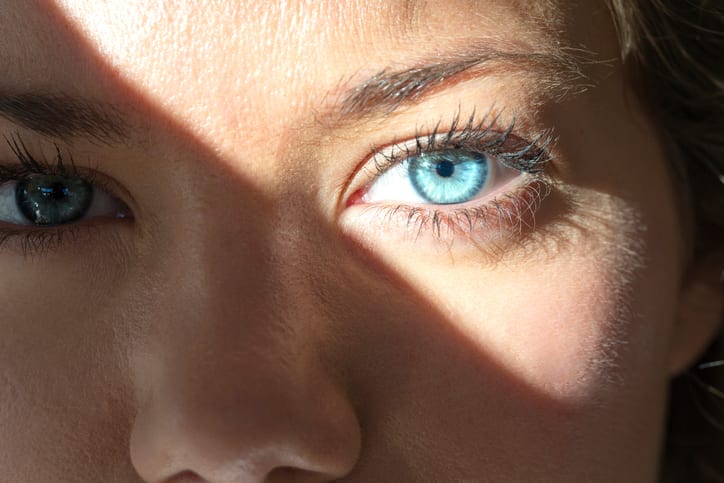Excessive or unprotected exposure to bright light, especially from artificial sources, can harm the eyes, causing discomfort, temporary blindness, and increased risk of long-term damage like cataracts and macular degeneration. To mitigate these dangers, wear sunglasses and limit screen time. Understanding the impact of high light can help improve eye care and prevent vision issues.
Benefits of Bright Light
Here are some of the benefits of bright light mentioned below:-
Enhanced Mood and Productivity
Bright light increases the release of serotonin, a chemical that enhances mood and helps alleviate sadness. Light treatment for Seasonal Affective Disorder (SAD) reduces depression symptoms by mimicking natural light. Proper lighting can improve productivity and reduce eye strain in the workplace.
Circadian Rhythms Regulations
Bright light, particularly sunlight, plays a vital role in maintaining the body's circadian cycle· Natural light helps to synchronize the internal biological clock, which promotes good sleep habits· exposure to natural light during the day signals to the body that it is time to get up and alert, which improves mood and energy levels·
Vitamin D Synthesis
Sunlight exposure is necessary for the skin to produce Vitamin D. Vitamin D promotes bone health and may prevent other illnesses, including eye issues. Maintaining adequate Vitamin D levels improves overall health, including eye health.
Mitigating the Effects
While the effects of intense light on the eyes are troubling, there are methods we may take to minimize their impact and protect our vision:
● Wear Sunglasses: Invest in high-quality sunglasses with 100% UV protection to safeguard your eyes from harmful UV radiation· Wear them outside, even on cloudy days, to avoid photokeratitis and lower the chance of long-term damage·
● Use Proper Lighting: To prevent glare and eye strain, utilize softer, diffused lighting in your home and workstation· To minimize shadows, position light sources away from direct lines of sight and use task lighting as needed·
● Limit Screen Time Before Bedtime: To avoid distressing your circadian cycles, limit your exposure to bright screens, especially in the hours leading up to bedtime· To mitigate the effects of screen-induced sleep problems, consider utilizing blue light filters or enabling night mode on your devices·
Impact of Bright Light
Excessive exposure to sunshine can injure the eyes, even though light is important for vision. Here are some of the ways solid light can affect our eyes:
Enhanced Risk of Photokeratitis: Excessive exposure to ultraviolet radiation causes photokeratitis, a sunburn-like condition on the eye's surface. This can occur after prolonged exposure to direct sunlight or artificial UV light without sufficient eye protection.
Photo Stress and Glare: Prolonged exposure to extreme light sources, like direct sunlight or glaring reflections, can create photo stress, resulting in a temporary loss of visual function. Glare occurs when light scatters within the eye, resulting in discomfort and poor visibility.
Eye Fatigue and Strain: Intense light sources, such as direct sunshine or glaring reflections, can produce photo stress, which is a temporary loss of visual function caused by prolonged exposure to intense light· Glare, for instance, happens when light scatters inside the eye, causing discomfort and decreased visibility·
Conclusion
In short, while bright light is necessary for regulating circadian cycles, improving mood, and aiding in vitamin D production, it can also induce photokeratitis, digital eye strain, and an increased risk of macular degeneration and cataracts· Wearing UV-blocking sunglasses, limiting screen usage, and ensuring correct lighting can all help to protect your eyes and preserve optimal visual health· Vision Eye Care provides comprehensive eye care solutions·







